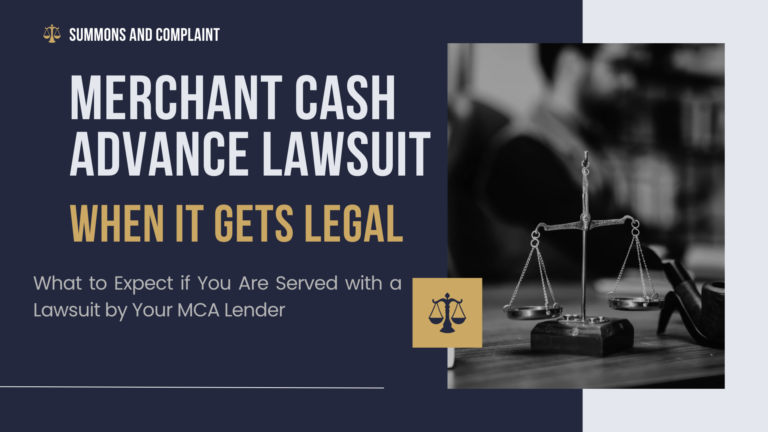A merchant cash advance lawsuit is a legal action taken by a lender against a borrower for failure to pay back a loan. Generally, when a borrower does not make payments or fails to comply with the terms of the agreement, then the lender may pursue legal action in order to collect the debt. The lawsuit may include claims for breach of contract, usury laws violations, fraud, or unjust enrichment. If the court rules in favor of the lender in the lawsuit, then it may issue an order requiring the borrower to repay the loan plus interest or damages. It can also order other remedies such as seizing assets, garnishing wages, and placing liens on property.

Legal Process
The legal process for a merchant cash advance lawsuit begins with the lender filing a complaint against the borrower in court. The lender will provide evidence of the loan, such as copies of the contract, and statement showing non-payment. The borrower will then be served with summons and a copy of the complaint. The borrower has to respond to the complaint by filing an answer or other response within a certain time period. After that, discovery can take place in which both parties exchange relevant information and documents. Depending on the circumstances, either party may file motions or requests for additional clarification from the court. Finally, depending on how long it takes for each step in the process to be completed, a trial date may be set for both parties to present their case before a judge or jury.
Not Responding
If the borrower does not respond to the complaint within the given time period, they are in default of their loan agreement. The lender can then request a default judgment from the court. A default judgment grants immediate relief to the lender, such as ordering payment of the loan plus interest and other damages. The borrower is often unable to contest the default judgement and will be responsible for all costs associated with litigation.
Similar Posts










